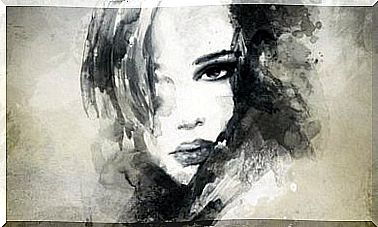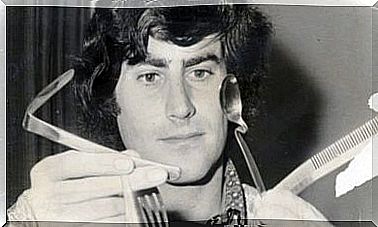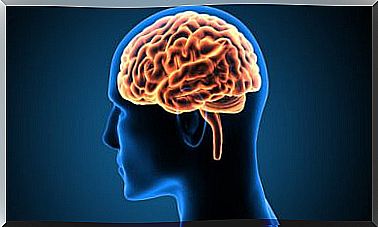When Intelligence And Intuition Work In Harmony

When intelligence and intuition work in harmony we are able to give the best of ourselves. In fact, by combining both realities, we are able to solve problems more effectively. Even more, it is under this combination that people make better decisions because we manage to use both reason and feeling with adequate balance.
Now, if there is something common enough, it is to conceive concepts such as our IQ and intuition as opposite dimensions. Moreover, it is common to understand intelligence as that highly rational, logical and even analytical way of operating, while intuition is often linked to an unscientific and almost even magical substrate.
Nothing is further from reality. Well-known books such as Intuitive Intelligence, by Malcolm Gladwell or Think fast, think slowly by Daniel Kahneman encourage us to understand a little more how these processes work. We must begin to think better, and to do so, it is not necessary to spend hours or even days deliberating on our decisions; rather, it would be about connecting a little more with our internal voice.
Albert Einstein said that the intuitive mind is a sacred gift, while the rational mind is its faithful servant. However, our society gives greater value to the servant, forgetting the gift that is for us the first.
It is therefore time to begin to understand that both spheres must always work in harmony, only then will we go from the world of intelligence to the realm of wisdom.

Intelligence and intuition: authentic knowledge at our fingertips
To better understand the link between intelligence and intuition, we will give an example. Let’s think of a doctor, a good professional who suddenly comes across a patient with unusual symptoms. Decide, for a moment, to apply the logical sense and try to deduce objectively what ailment the person suffers.
However, he also chooses to make use of his intuition, of that sense that experience gives him, his background and clinical eye. He knows that through that internal voice he can react faster but it is always better to make use of both spheres: reason and intuition, intelligence and those hunches that beat because of the shooting that his profession has given him.
We should all master both patterns of thought. The rational mind and the intuitive mind serve each other and when they work in harmony, we always win. Now, if we limit ourselves to using only one of them, we will be limiting our true potential. Because whoever lets himself be carried away only by intuition can hit his face not once, but ten times.
On the other hand, those who choose to silence what we call “instinct” or even “sixth sense” are tearing off the legs that support intelligence. Let’s see why.

Intuition is a guide, not an oracle
We tend to think of the term intuition almost like an oracle. As if a prophetic voice emerged from us capable of revealing what to do and what not to do at all times. The truth is that this dimension does not work that way. An example, studies as interesting as the one carried out at Elizabethtown University, in the United States, by Dr. Jean Preatz, show us something relevant.
Almost 90% of nurses are guided by their intuition when making day-to-day decisions at work. They do it because they know that this area acts as a framework for action. In other words, it is instinct that tells us what is worth our attention and what is not, what could be a little more accurate and what is not.
Intelligence and intuition, an act of courage and self-confidence
Gerd Gigerenzer, director of the Max Planck Institute for Human Development, is one of the leading psychologists in the study of decision making. For him, intelligence and intuition make up that daily exercise capable of putting us in advantageous situations.
Thus, as he explains in his book Gut Feelings: The Intelligence of the Unconscious, intelligent people are the ones who listen to their intuition, their emotions and their hunches. What’s more, if there’s one thing you’ve learned throughout your life as a researcher, it’s that hunches deserve at least a little of our attention. When these appear, they do not have to be dismissed or invalidated instantly.
Listening to them is an act of courage and self-confidence. Because when the voice of intuition arrives it always challenges us in some way. It whispers certain directions, directions, and paths to us. All that information must be valued and pass through the filter of reason; only then will we discover more suggestive and suitable options for us.

conclusion
As Albert Einstein pointed out, in our modern and current society the intellect is valued above all else. Within this, processes such as logical reasoning, deduction, analysis, etc. are conceived as more remarkable. What’s more, we even develop standardized tests to assess IQ and find out how fit we can become.
However, we relegate an almost essential dimension that we actually use on a daily basis: intuition. It is she who helps us to decide quickly, she who guides us and allows us to react to everyday challenges. Knowing how to use it, listen to it and always place it in adequate tune with intelligence, will allow us to decide much better and respond effectively.
Let’s dare, use intelligence and intuition and we will enter the realm of wisdom.









